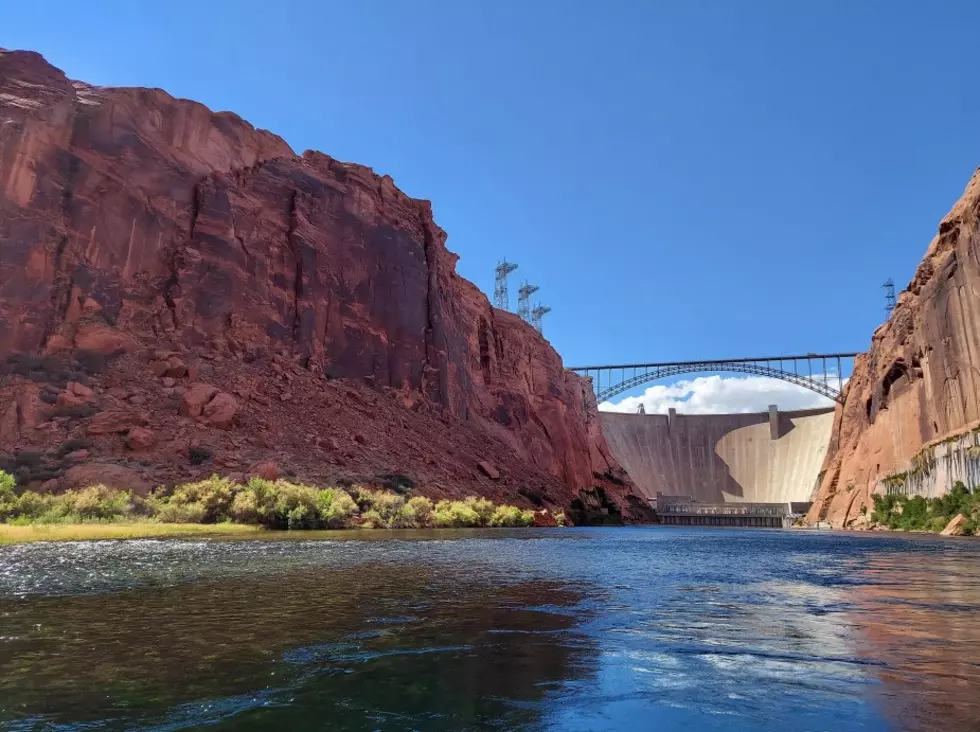
Ninth Circuit upholds federal plan for Colorado River dam
Alanna Mayahm
(CN) — Conservationists lost an appeal to the Ninth Circuit on Wednesday as they attempted to force the federal government to reconsider climate change studies in managing the Glen Canyon Dam and Colorado River.
Save the Colorado, Living River and the Center for Biological Diversity initially asked the U.S. Department of the Interior to consider emerging climate science and the severe potential of climate change in updating its management plan in 2016 for the Glen Canyon Dam on Lake Powell, which has a water level 3,564 feet above sea level. Experts say the dam will lose hydropower if the water level drops below 3,490 feet.
During the groups’ February appeal hearing, Chief U.S. Circuit Judge Mary Murguia and U.S. Circuit Judge Anthony Johnstone, both Joe Biden appointees, questioned whether the Interior’s absent response violated the National Environmental Policy Act itself and scrutinized the Interior’s historical water flow modeling.
However, neither of the judges’ skepticisms outweighed their conclusion that the Interior did not violate environmental law when developing its 20-year plan for managing water releases from the dam or the plan’s accompanying environmental analysis.
“Appellants contend that Interior impermissibly elevated hydroelectric power generation in its purpose and need statement. We disagree,” the panel wrote in the unpublished memorandum.
The Bureau of Reclamation and the National Park Service, two sub-agencies of the Interior, eventually developed and considered seven alternative plans to manage water releases from Lake Powell through the Glen Canyon Dam. But the agencies ignored alternative proposals that the conservationists say better account for future climate change.
The conservationists sued in 2019, four months after sending the Interior a letter detailing new research, which still hasn’t been answered. In December 2022, a federal judge sided with the Interior in a summary judgment finding the groups didn’t prove the federal agency hadn't analyzed the effects of climate change.
U.S. Circuit Judge Michael Hawkins, a Bill Clinton appointee, joined Judges Murguia and Johnstone in denying the groups’ appeal.
The panel found that the Interior selected a management plan that adequately juggled its obligations under the Grand Canyon Protect Act of 1992 with other relevant regulations, such as the Colorado River Storage Project Act of 1956.
The judges explained how the groups’ proposals would have either reduced or eliminated hydropower generation at the dam or run afoul of the long-term management plan's limited purpose: to create monthly, daily and hourly water release schedules.
And since the Interior’s plan controls the timing of water releases from the dam — not the volume of water it must release annually — the panel ruled that the Interior “reasonably focused its climate-change analysis on comparing the performance and effect of each of the seven alternatives under various climate change conditions, rather than providing a full-fledged assessment of water availability in the Colorado River Basin.”
By ignoring the groups’ demand for a supplemental environmental analysis, the panel decided, the Interior made a harmless error.
“Because there is no indication that the studies contain information ‘not already considered’ or that would ‘materially affect the substance of [Interior’s] decision’ regarding the timing of water releases from Glen Canyon Dam, no prejudice resulted from Interior’s failure to respond to appellants’ letter.”
In an email on Wednesday, Center co-founder Robin Silver acknowledged the loss while indicating that the organization’s fight against federally operated dams is far from over.
Silver wrote, “We lost. But operations of Glen Canyon Dam still need to be modified, whether it’s by prevention of the movement of exotic fish (mostly bass) through the dam, and the dam’s dysfunction owing to the river outlet works falling apart resulting in the increasing need to use the penstocks which will further increase movement of exotic fish thus jeopardizing downstream native fish further.”
"Stay tuned," he added, "there will obviously be more litigation as BuRec continues to ignore River health to provide for subsidized power production.”
